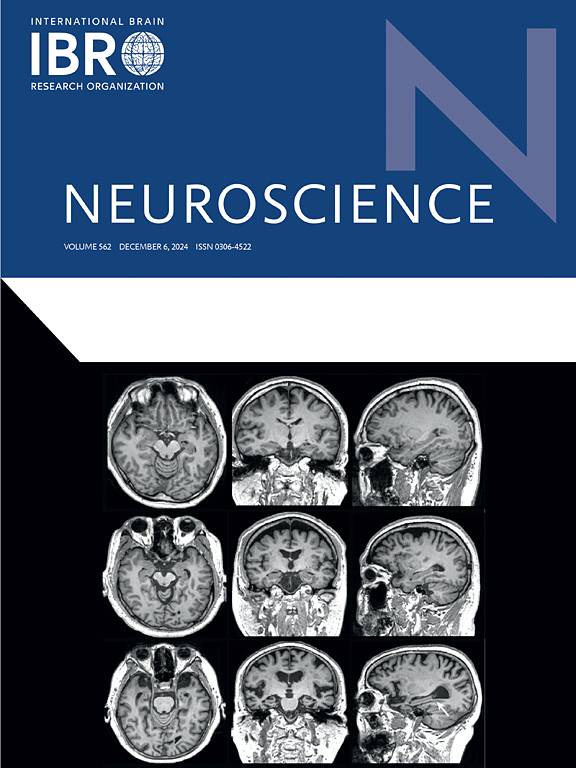Age-related dysregulation of proteasome-independent K63 polyubiquitination in the hippocampus and amygdala
IF 2.9
3区 医学
Q2 NEUROSCIENCES
引用次数: 0
Abstract
Cognitive decline with aging is a complex process involving multiple brain regions and molecular mechanisms. While the role of the canonical protein degradation function of the ubiquitin–proteasome system (UPS) has been well studied in the context of aging and age-associated memory loss, the non-proteolytic functions of ubiquitin activity remain poorly understood. Here, we investigated the role of lysine-63 (K63) polyubiquitination, the most abundant form of proteasome-independent ubiquitination, in aged rats, focusing on the hippocampus and amygdala, two brain regions reported to have cellular and molecular alterations with age that are associated with age-related memory loss. Using an unbiased proteomic approach, we observed a significant increase of K63 polyubiquitination in the hippocampus across the lifespan. Reducing K63 polyubiquitination in the hippocampus of aged male rats using the CRISPR-dCas13 RNA editing system enhanced contextual fear memory, while similar manipulations in middle-aged rats, which typically have normal memory, had no effect, emphasizing the age-dependent role of K63 polyubiquitination in memory formation. Conversely, the amygdala showed a consistent reduction of K63 polyubiquitination protein targets across the lifespan, and further reductions of K63 polyubiquitination improved memory retention in aged, but not middle-aged, male rats. Together, our findings reveal the dynamic and region-specific functions of K63 polyubiquitination in the brain aging process, providing novel insights into its contribution to age-associated memory decline.

海马和杏仁核中蛋白酶体非依赖性K63多泛素化的年龄相关失调
随着年龄的增长,认知能力下降是一个复杂的过程,涉及大脑的多个区域和分子机制。虽然泛素-蛋白酶体系统(UPS)的典型蛋白质降解功能在衰老和与年龄相关的记忆丧失中的作用已经得到了很好的研究,但泛素活性的非蛋白质降解功能仍然知之甚少。在这里,我们研究了赖氨酸-63 (K63)多泛素化的作用,这是最丰富的蛋白酶体非依赖性泛素化形式,在老年大鼠中,重点关注海马和杏仁核,这两个大脑区域随着年龄的增长而发生细胞和分子改变,与年龄相关的记忆丧失有关。使用无偏倚的蛋白质组学方法,我们观察到海马中K63多泛素化在整个生命周期中显著增加。使用CRISPR-dCas13 RNA编辑系统减少老年雄性大鼠海马中的K63多泛素化增强了情境恐惧记忆,而在通常具有正常记忆的中年大鼠中,类似的操作没有效果,强调了K63多泛素化在记忆形成中的年龄依赖性作用。相反,杏仁核显示K63多泛素化蛋白靶点在整个生命周期中持续减少,K63多泛素化的进一步减少改善了老年雄性大鼠的记忆保留,而不是中年雄性大鼠。总之,我们的研究结果揭示了K63多泛素化在大脑衰老过程中的动态和区域特异性功能,为其对年龄相关记忆衰退的贡献提供了新的见解。
本文章由计算机程序翻译,如有差异,请以英文原文为准。
求助全文
约1分钟内获得全文
求助全文
来源期刊

Neuroscience
医学-神经科学
CiteScore
6.20
自引率
0.00%
发文量
394
审稿时长
52 days
期刊介绍:
Neuroscience publishes papers describing the results of original research on any aspect of the scientific study of the nervous system. Any paper, however short, will be considered for publication provided that it reports significant, new and carefully confirmed findings with full experimental details.
 求助内容:
求助内容: 应助结果提醒方式:
应助结果提醒方式:


